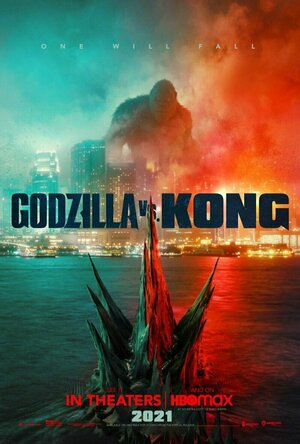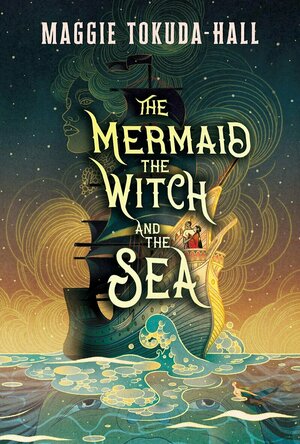
Remoter VNC - Remote Desktop
Productivity and Utilities
App
● Full resolution support for the iPad Pro ● ●● SSH Key import via clipboard added, SSH on...

Raw Attraction Magazine - Love Sex & Relationships
Lifestyle and Magazines & Newspapers
App
Become the best lover you can be! This Is The Leading Magazine For Men & Women In The Apple...
Emma @ The Movies (1786 KP) rated Godzilla vs. Kong (2021) in Movies
Apr 29, 2021
Godzilla and Kong come head to head in a vicious battle as the humans embark on a mission to discover the ultimate power source.
I won't harp on this point too much because we're nearly at the point where I won't have to... hopefully... but this needs the big screen. You need that experience to get the full effect.
Monsters fight... do we need any story? I didn't. Which is just as well because I wouldn't be able to tell you what specifically happened apart from what I wrote in the synopsis.
You could have had this film without the humans, or as a human focus film with the monsters just lurking in the background of the whole thing. (Though I don't think anyone would care about the latter.) The monsters could easily have done a film without the humans, there's only actually one point where they're needed, and that was quite frankly dubious.
Let's talk about those humans, but where to start? The film needed to commit to either being a companion to the last film or being a new film in the franchise. So far all the others have been quite independent of each other in comparison. It may not be a popular opinion, but I would have opted for a new film... and that means no Millie Bobby Brown and no Kyle Chandler (who was quite frankly underused anyway).
My definite highlight was Brian Tyree Henry in his role as the conspiracy podcaster, and I really enjoyed that whole thread. But it definitely could have been switched up a bit and resulted in a much more believable discovery sequence in the plot. That was quite a big thing in the film, when giant monster events are more believable than human ones, you need to rethink what you're doing.
As much as I love Alexander Skarsgård, I cannot tell you much of anything about his role. He's usually always an enjoyable actor, but even that couldn't save this bland character. So much so, that when I listened to a podcast on this film and they mentioned him, I went "oh yeah, he was in it".
My main take away was that most characters had very little development, and I know I was there for the monsters, but the humans needed to not be throwaways for the amount of time they spent on screen.
I'm not going to go into the effects, they were great, and I loved them just as much as in King of the Monsters. The colours were amazing.
I'm very pleased I didn't spot spoilers for the film before seeing it. The reveals were well done and I enjoyed some of the moments that came from them, but it leads me to something I've been pondering...
This sequence of films feels wrong, Had Godzilla vs. Kong been before King of the Monsters then you'd have been presented with the perfect way to introduce more creatures, but the character dynamics would not have been right with that shuffle. There are so many possibilities, that going over them would take way too long.
For a title that highlights Godzilla before Kong, it's oddly weighted, Kong is a much bigger feature than G-zee is. He gets his own personality and a bit more heart, and it was nice to see him become a new person... ape... giant fuzzball. I can't help but be a little sad that one of his moments from the original wasn't duplicated in all its glory here.
Overall it's a fun creature feature and the action is epic as expected, with some twists thrown in if you managed to avoid the spoilers. While I really do love moments from Godzilla vs. Kong, I'm not sure it's better than KotM, but it's well worth the watch either way.
Originally posted on: https://emmaatthemovies.blogspot.com/2021/04/godzilla-vs-kong-movie-review.html
Lottie disney bookworm (1056 KP) rated The Mermaid, the Witch and the Sea in Books
Sep 20, 2020
I chose this book simply based on the synopsis and the gorgeous cover art. I expected it to be a standard YA read, perhaps edging on middle grade but wow was I wrong! This novel contains all the gritty bits of a Pirate’s life and is as far from Neverland pirates and mermaids as you can get.
The Mermaid, the Witch and the Sea centres around the relationship between a high-born, queer, Japanese-inspired noblewoman, Evelyn and a pirate named Florian who is secretly a girl named Flora, disguising themself in order to gain the respect of their crew mates.
Evelyn and Florian instantly capture the heart of the reader. They are such an unlikely match and from completely different worlds but the way that Maggie Tokuda-Hall throws these two characters together and alternates chapters between their perspectives is so compelling. The secret attraction and the pining between Evelyn and Florian can literally be felt through the pages. These two are guaranteed to stay with you long after the book is finished.
In fact, the majority of Tokuda-Hall’s cast of characters are so well developed: we have Rake, the first mate who is a very closed character and keeps his own intentions close to his chest for most of the novel. We have a gender-fluid Pirate Supreme, an imperialist noblewoman who can kick ass and Flora’s brother Alfie, a tortured soul whose traumatic past is alluded to often.
The portrayal of mermaids in the novel is nothing short of inspired: hunted and captured for the properties their blood possesses, mermaids are quite ugly when imprisoned by pirates. These mythical creatures that are renowned for their beauty are only conventionally beautiful in the presence of their loving mother: The Sea. The Sea in turn will do whatever she can to protect her children, and will always reward those who help.
The other pirates are, as you would expect, a group of shady characters but they do not fade into the background at all. Tokuda-Hall reveals right from the beginning the true intentions of this crew and it creates an underlying tension throughout the whole voyage upon The Dove. The twists, secrets and revelations onboard that ship are captivating and create a page-turning first half of the book.
I will say that during the middle of the book, mainly during “The Witch” section, the pace slowed dramatically and it just didn’t flow as much.
I almost wanted more treachery and more suspense from the witch, more struggle by Evelyn and, dare I say, more pining from Evelyn and Florian. Their relationship up to this point had been so intense and slow burning that it almost seemed to cool a little.
I also feel that not quite enough was made of Evelyn’s discovery about the real reason behind her voyage. It was almost a convenient way for that side of her story to be resolved. Similarly, with Florian/Flora; their evolution from Pirate to Witch seemed quite acceptable and tame.
These factors, in my opinion, affected the ending of the novel where everything seemed quite rushed in its efforts to tie up all loose ends. Please don’t misunderstand, I LOVED the ending and how Evelyn and Flora/Florian finished their journey. I even shed a few tears. However, it was the lead up to this that just seemed too convenient and too quick.
Overall this is a wonderfully dark pirate novel that instantly creates a world full of magic and wonder whilst tackling the issues of identity, colonialism, homophobia, poverty and rape. A world where gender-fluid and queer characters fight against injustice alongside endangered mermaids and the Sea is to be respected almost as a deity.
I cannot believe that this is merely Maggie Tokuda-Hall’s debut novel! I cannot wait to see where she takes us next!

YouTube Kids
Entertainment and Education
App
The official YouTube Kids app is designed for curious little minds to dive into a world of...

News Break: Local & World News
News and Weather
App
Stay up-to-date on global and local news while saving time with the newly designed News Break app...

Channels ‒ Live TV
Entertainment
App
Live TV, anywhere in your home. Channels lets you watch, pause, and rewind local or cable TV...

Hungama Music - Songs & Radio
Music and Entertainment
App
Hungama Music App provides free & unlimited access to listen to music online or download songs &...

Audiomack Music & Mixtape App
Music and Entertainment
App
Audiomack is a FREE streaming music app, built to let you stream and download the hottest new music,...

PrintCentral Pro
Business and Productivity
App
The Ultimate File Management, Transfer and Print solution for the iPad. Print to ALL printers (Not...

